Yoko Mizuki
Nacimiento : 1910-08-25, Tokyo, Tokyo Prefecture, Japan
Muerte : 2002-04-08

Original Story
The Girls' Division of Okinawa Normal School and the First Okinawa Prefectural High School for Girls were also known as "Himeyuri no Gakuen". In July 1944, the students, who were supposed to spend their summer vacations at home, were called back to school to prepare for the coming war and to fulfill their duties as subjects of the Imperial State. The fate of the girls and teachers awaited them as the American army attacked.

Screenplay
A remake of the 1953 film of the same name.

Screenplay

Writer
Older brother younger sister.

Screenplay
Horror film based on the story by Ryunosuke Akutagawa.

Original Story

Screenplay
Keizo Tsujiguchi believes his wife Natsue was having an extramarital affair when their child was kidnapped and killed. He believes of her extramarital affair she was unable to watch over their child properly and blames her for their daughter's death. To exact revenge on his wife, he then adopts the killer's child without telling the truth to his wife or their newly adopted child.
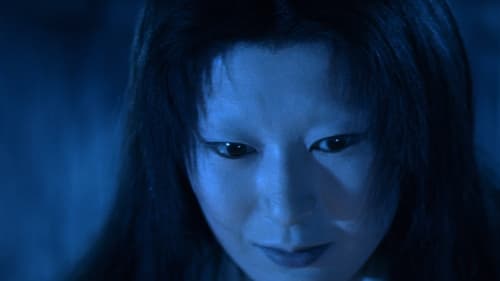
Screenplay
Filme basado en cuatro historias del escritor Lafcadio Hearn. "Pelo negro": un samurái no soporta a su mujer y la abandona por una princesa. Años después vuelve a casa para realizar un terrible descubrimiento. "La mujer en la nieve": dos leñadores se refugian de una tormenta de nieve en lo que parece ser un cobertizo abandonado. "Hoichi": el fantasma de un samurái le pide a un músico ciego que toque una balada en la tumba de su señor. "En la taza de té": un samurái se asusta ante la visión de un hombre reflejado en su taza de té.

Writer

Screenplay
Two obaachans become fast friends listening to music in front of a record store. They both boast about their loving sons but in reality, one had just escaped a retirement home and the other was looking for an escape from her son and daughter-in-law. With nowhere to go, the two wander around, befriending a cosmetics salesman and a kind waitress who give them beer. This biting social satire starring two memorable grandmothers, scripted by Yôko Mizuki, picked up on Japan’s aging population problem far ahead of its time.

Original Story
Two obaachans become fast friends listening to music in front of a record store. They both boast about their loving sons but in reality, one had just escaped a retirement home and the other was looking for an escape from her son and daughter-in-law. With nowhere to go, the two wander around, befriending a cosmetics salesman and a kind waitress who give them beer. This biting social satire starring two memorable grandmothers, scripted by Yôko Mizuki, picked up on Japan’s aging population problem far ahead of its time.

Writer

Screenplay

Original Story

Screenplay
Story of a well-to-do family.

Writer
Set in 1926 when Japanese tradition was much stronger, this drama looks at the inner workings of a small family, especially the relationship between a sister and brother.

Screenplay
Kiku and her brother Isamu are social outcasts, children of a prostitute mother and black GI father, in postwar Japan.

Writer
A film about the life of Kiyoshi Yamashita, a Japanese painter with disabilities.

Screenplay
Five boys escape from their life of bondage on an island 10 miles off Hiroshima, and are picked up in the Inland Sea, drifting in an open boat.

Original Story
Five boys escape from their life of bondage on an island 10 miles off Hiroshima, and are picked up in the Inland Sea, drifting in an open boat.

Screenplay
Junai Monogatari AKA Story of Pure Love is about two poor youths, Mitsuko and Kando, rebelling against society in various ways, who are desperately trying to be together despite tortuous circumstances. The film depicts their lives as thieves, menial laborers who can get little pay, society outcasts, and of course, lovers. Junai Monogatari depicts, mostly, their struggles within the Japanese reformatory system and Mitsuko's worsening sickness.

Original Story
Junai Monogatari AKA Story of Pure Love is about two poor youths, Mitsuko and Kando, rebelling against society in various ways, who are desperately trying to be together despite tortuous circumstances. The film depicts their lives as thieves, menial laborers who can get little pay, society outcasts, and of course, lovers. Junai Monogatari depicts, mostly, their struggles within the Japanese reformatory system and Mitsuko's worsening sickness.

Original Story
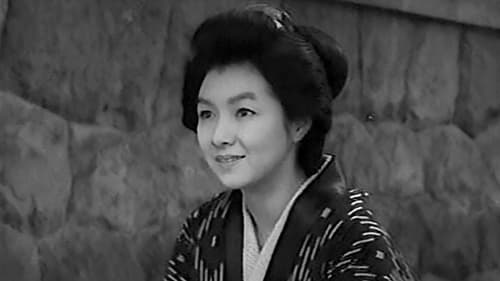
Screenplay
A woman marries, gives birth to a stillborn child, and divorces, falls in love with a hotel-keeper, only to find herself subordinated to his drive for success, takes up with a tailor who cannot console himself with her strong personality.

Adaptation
An Ishiro Honda Film.
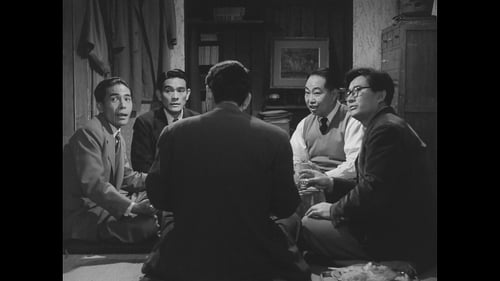
Screenplay
A husband and wife's pet peeves and minor irritations escalate into major rifts and animosity.

Writer
The story of a group of young people who organise their own travelling symphony orchestra to provide music for people living in remote villages shortly after the war.

Screenplay
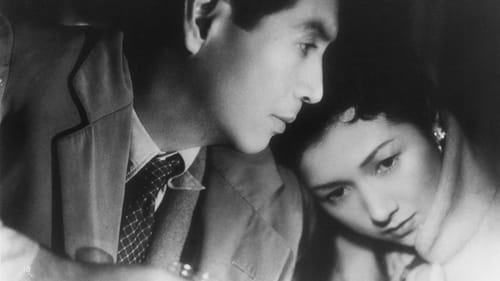
Screenplay
Yukiko y Tomioka fueron amantes durante la II Guerra Mundial, que pasaron en el sudeste asiático. Terminado el conflicto, Yukiko vuelve a Tokio en busca de Tomioka, al que cree divorciado, pero él sigue casado. A partir de ese momento su relación alterna separaciones y reencuentros, mientras otros hombres y mujeres pasan por sus vidas. (FILMAFFINITY)
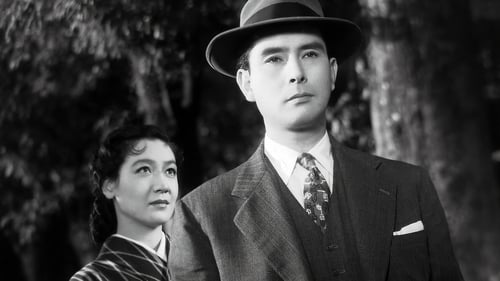
Screenplay
Shuichi, hijo de Shingo, un próspero hombre de negocios de Tokio, vive con sus padres y su esposa Kikuki en una confortable casa. Por las tardes, se queda a menudo en la capital, bebiendo y divirtiéndose con su querida. Kikuko aguarda pacientemente su regreso a altas horas de la noche. Shingo, hombre sabio y de talante moderno, es consciente de los desenfrenos de su hijo y compadece a la solitaria Kikuko. (FILMAFFINITY)

Adaptation
Shuichi, hijo de Shingo, un próspero hombre de negocios de Tokio, vive con sus padres y su esposa Kikuki en una confortable casa. Por las tardes, se queda a menudo en la capital, bebiendo y divirtiéndose con su querida. Kikuko aguarda pacientemente su regreso a altas horas de la noche. Shingo, hombre sabio y de talante moderno, es consciente de los desenfrenos de su hijo y compadece a la solitaria Kikuko. (FILMAFFINITY)

Screenplay
Three short tales from stories by Ichiyo Higuchi. In one, a young woman is degraded by her family after an arranged marriage. Another deals with the troubles heaped upon a young servant by her family and the wealthy people who employ her. The final story tells of a prostitute and her hopes of finding a new, respectable life.

Screenplay
En un pueblo campesino no muy lejos de Tokio, Akaza y su esposa Riki se preocupan por el porvenir de sus hijos. Inokichi, el primogénito, es vago y pendenciero. De las dos hermanas, la mayor, Mon, está en Tokio, y a la menor, San, intentan casarla con un comerciante local. Mon aparece un día anunciando que está embarazada. Inokichi, encolerizado, pelea con su hermana, a pesar de que ambos se llevaban muy bien durante la infancia.

Screenplay
Michiko Asakura was married to the eldest son of the Sakuma family, an unsealed family in Shinshu, but died from her husband and returned to her parents' house in Tokyo with her five-year-old daughter Yoshiko.

Screenplay
A married couple looking for an apartment move in with the husband's co-worker, a widower. The husband becomes jealous of the widower and his wife.

Screenplay
A group of Okinawan high school girls are drafted as nurses during the American invasion of the island. As the enemy army advances further, the situation for the girls becomes increasingly desperate as food and shelter run out and the number of injured climbs, leading to the film's tragic finale.
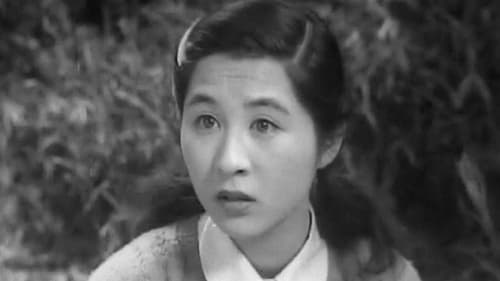
Screenplay
'Madre' es la historia de una madre pobre y trabajadora, con un marido enfermo, que se sacrifica para mantener a su familia en los suburbios de Tokio. La película define "Shomin Geki", un género cinematográfico japonés que presenta una representación realista de la clase baja económica, contada con elementos de comedia ligera y melodrama. Esta es la obra más conocida del director Mikio Naruse, aclamado por los historiadores de cine japoneses como un igual a Kurosawa, Ozu y Mizoguchi, pero subestimado en Occidente.

Screenplay
Soichi Ataka is the eldest son of Ataka family. Although mentally challenged, he's a person with a gentle heart. Soichi's wife, Kuniko is devoted to her husband and together the couple runs the family farm. Their happy family life comes to an abrupt halt when Soichi's half-brother, Joji returns with his wife Masako after failing in a business.

Screenplay
Saburo and Keiko fall in love with each other but the tide of war separates them.

Screenplay























